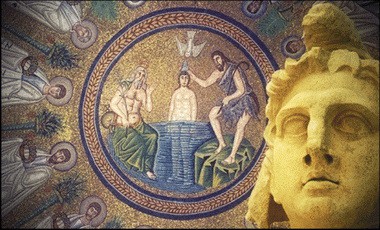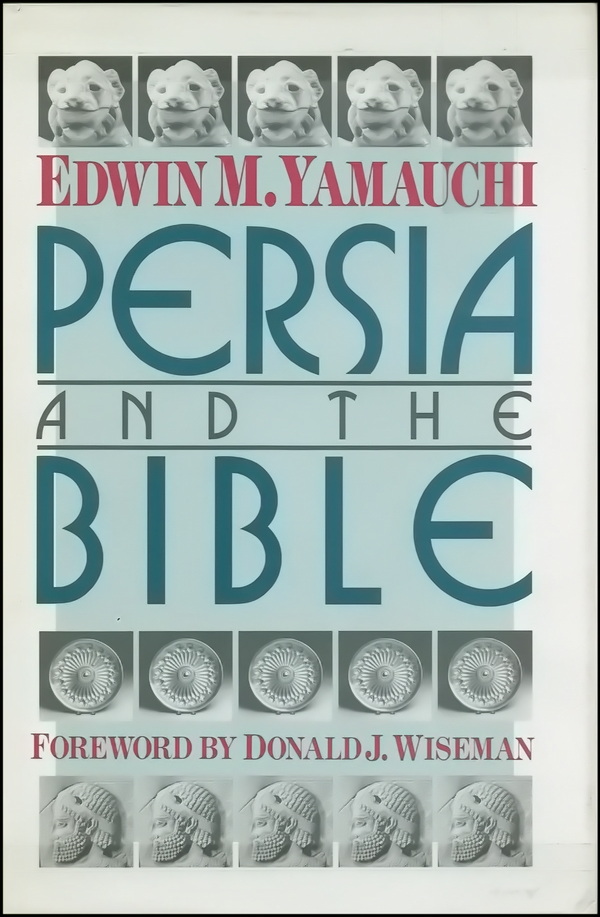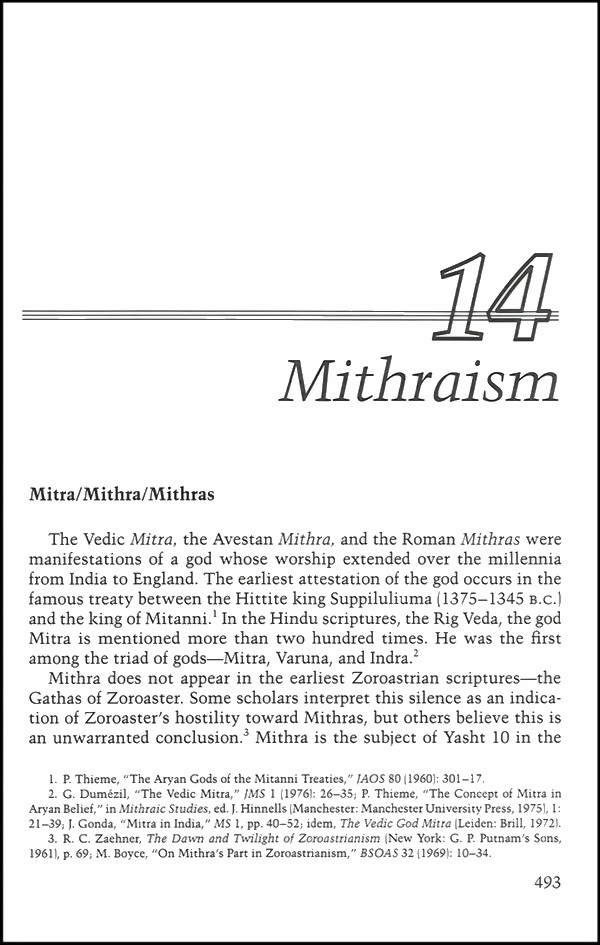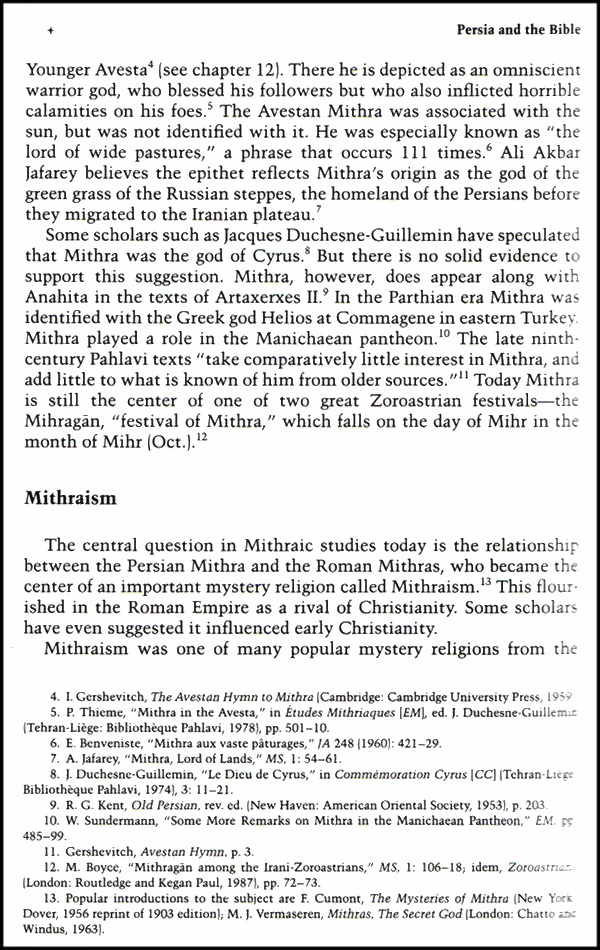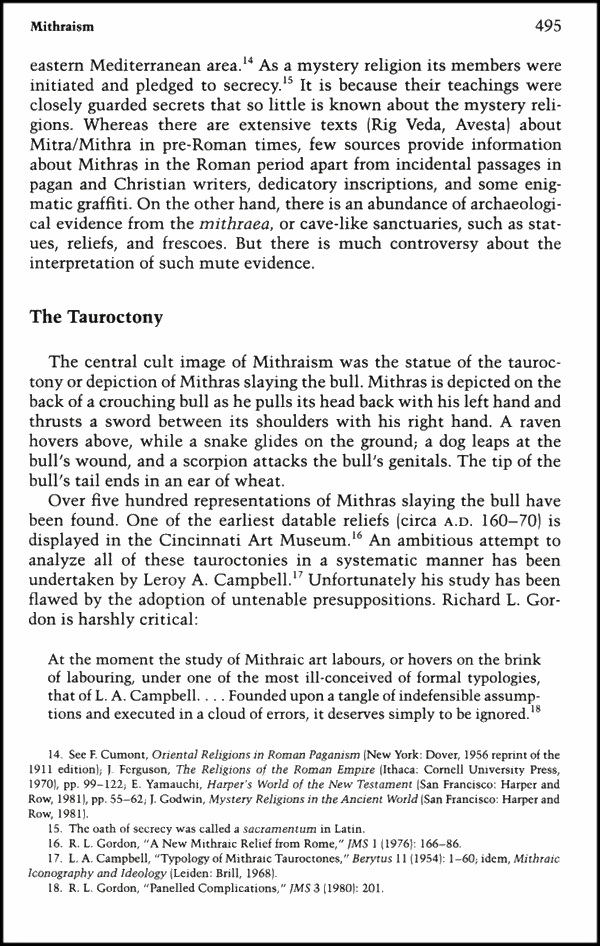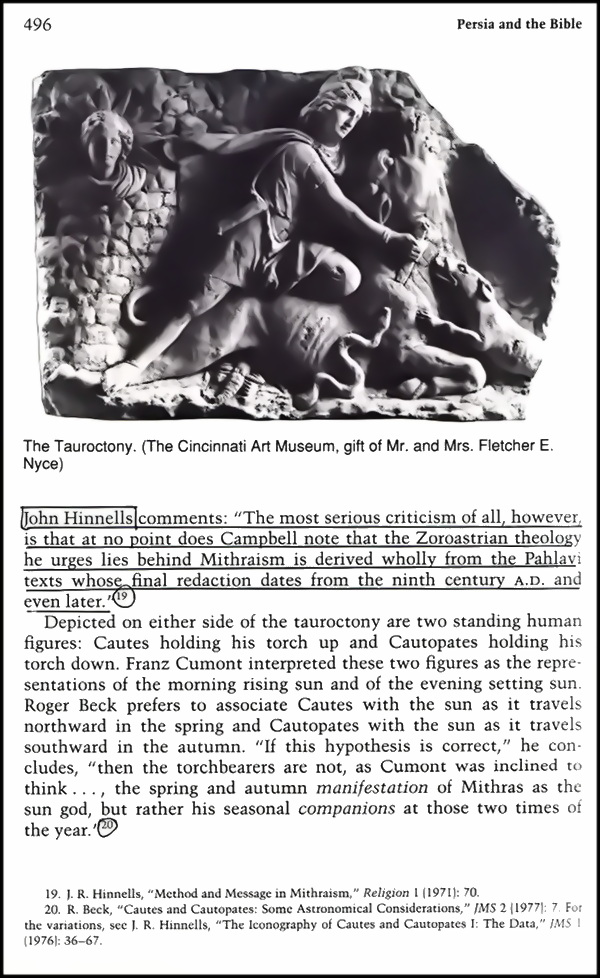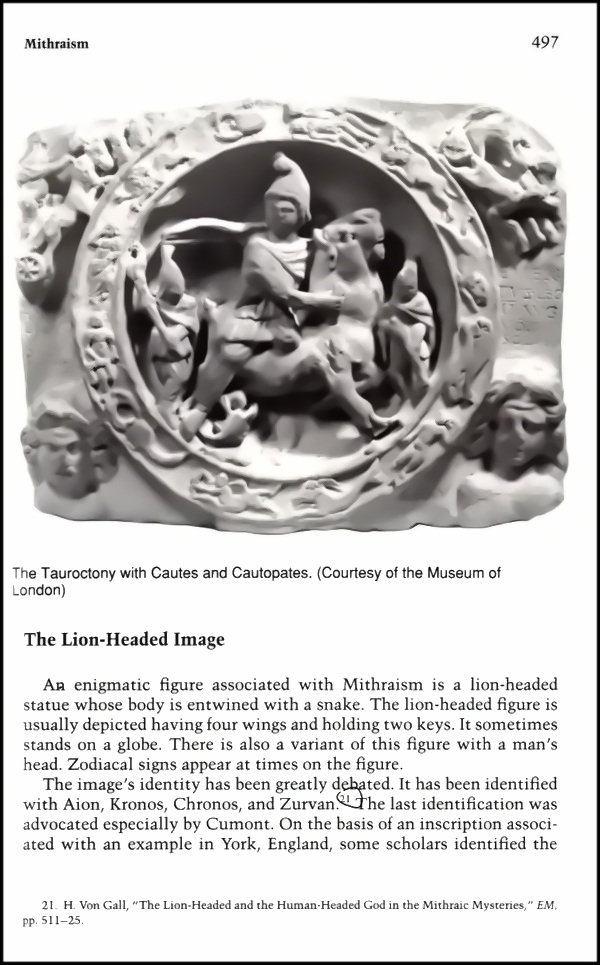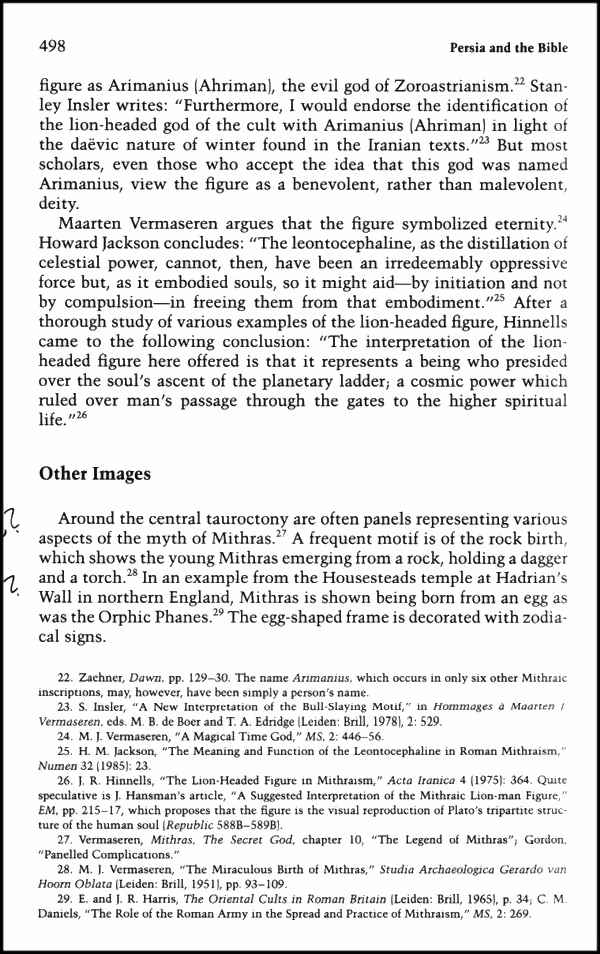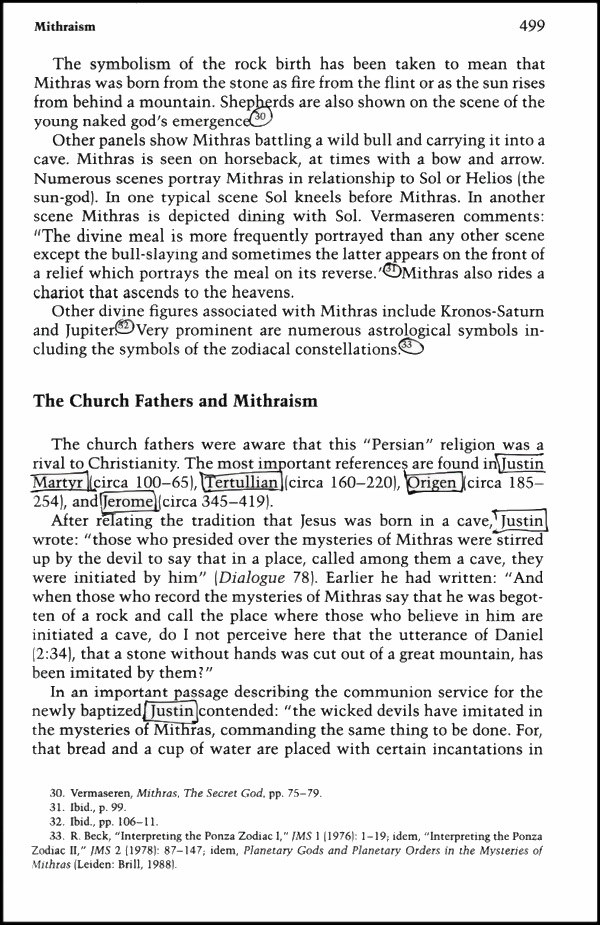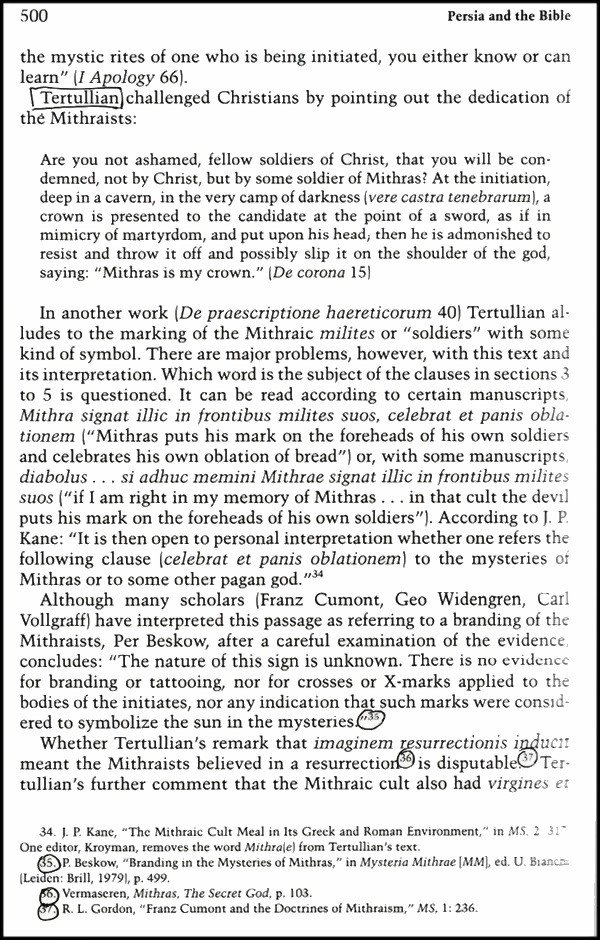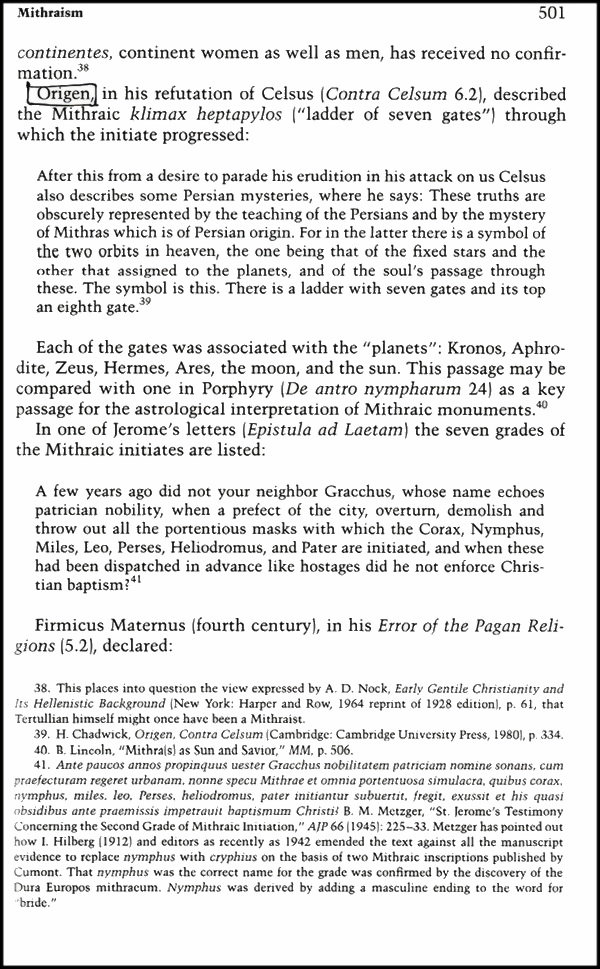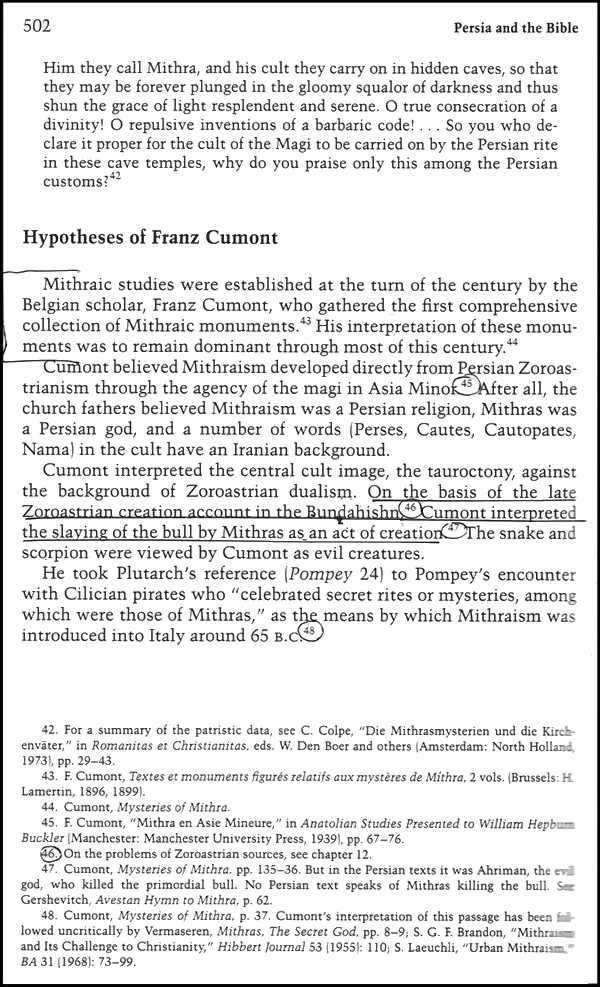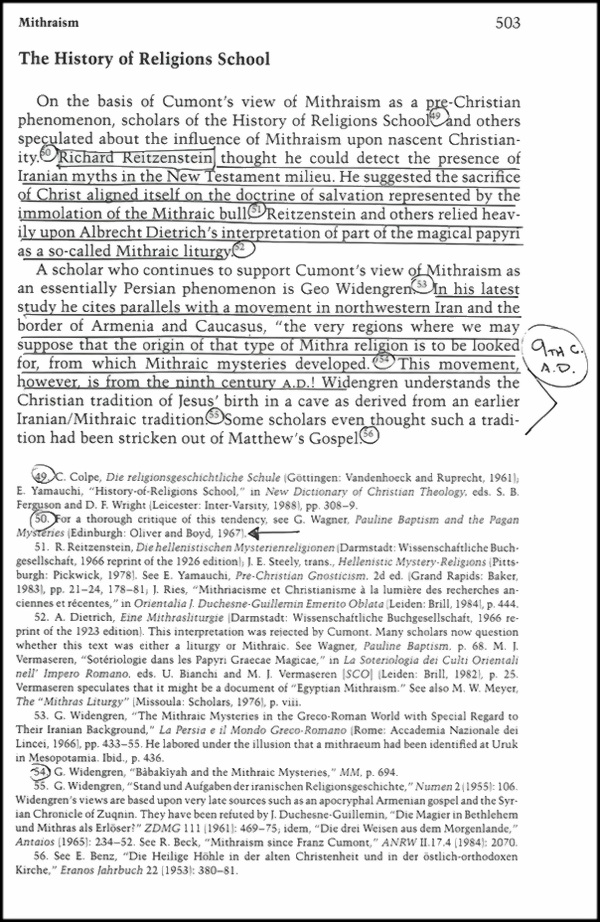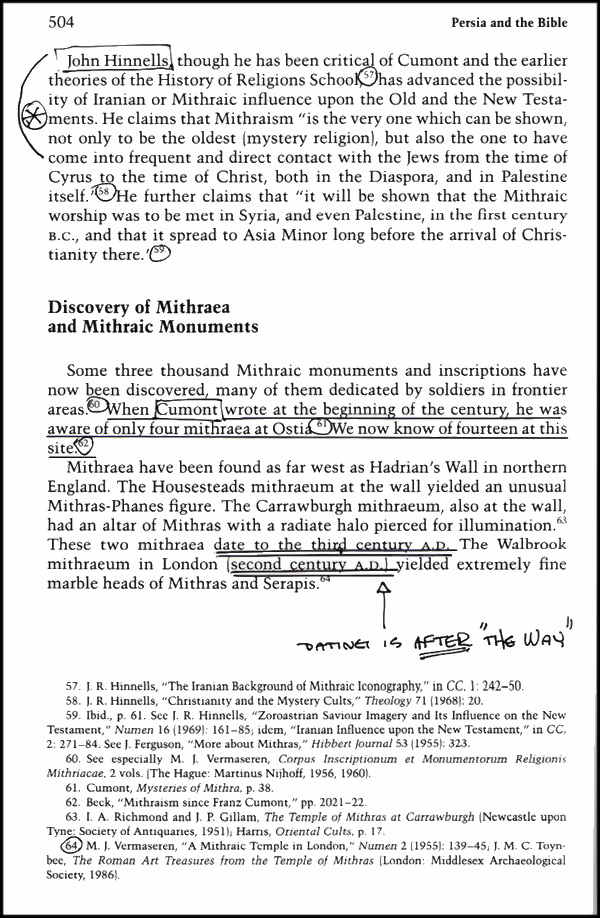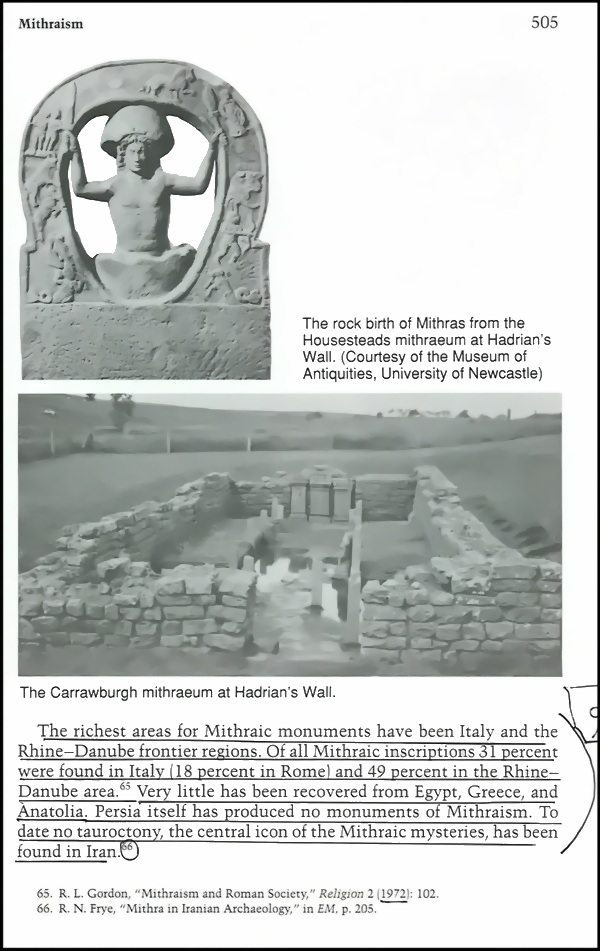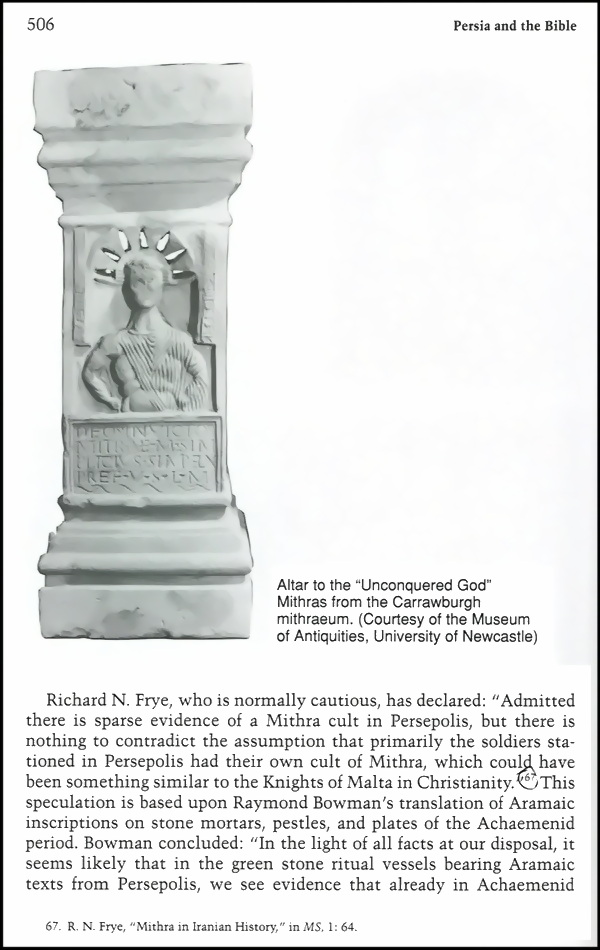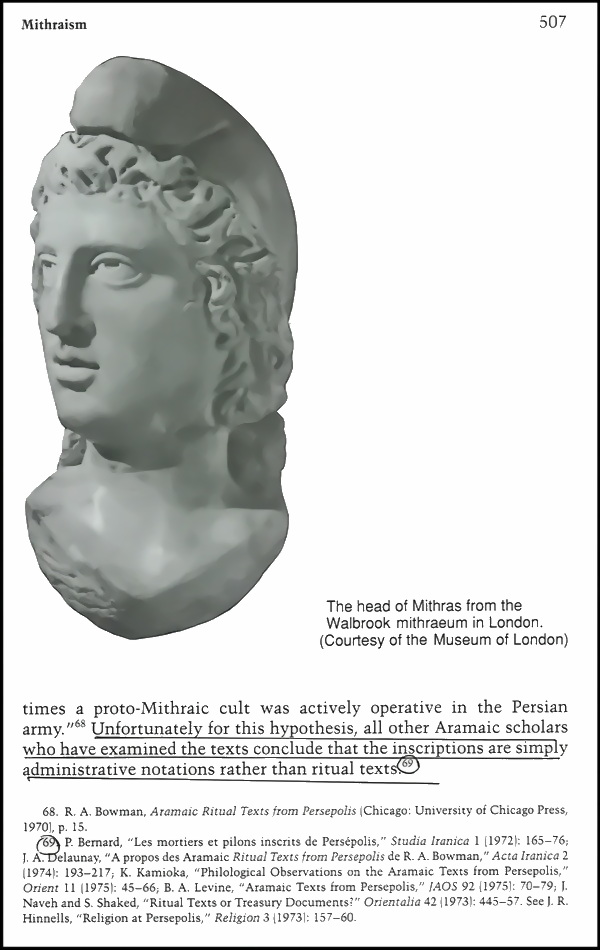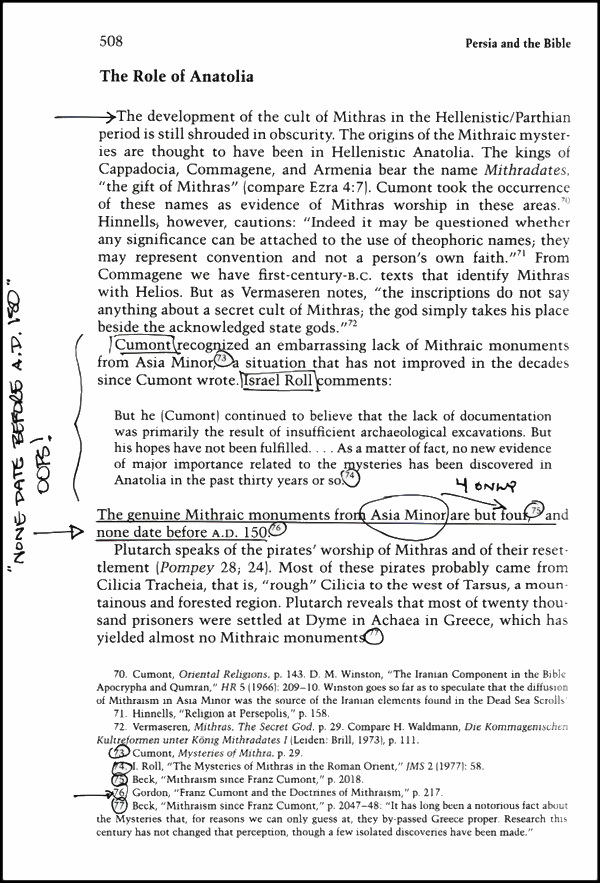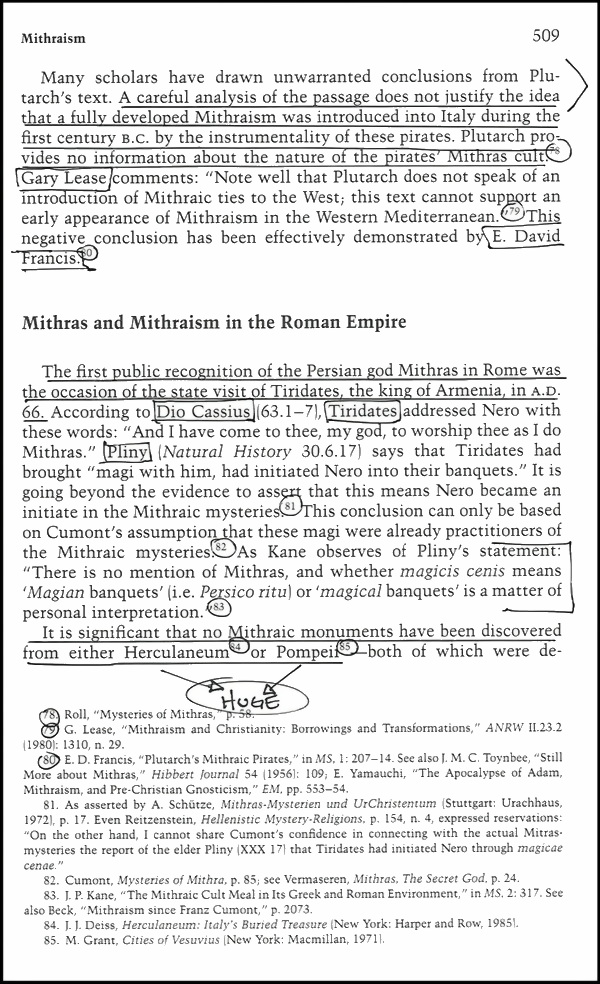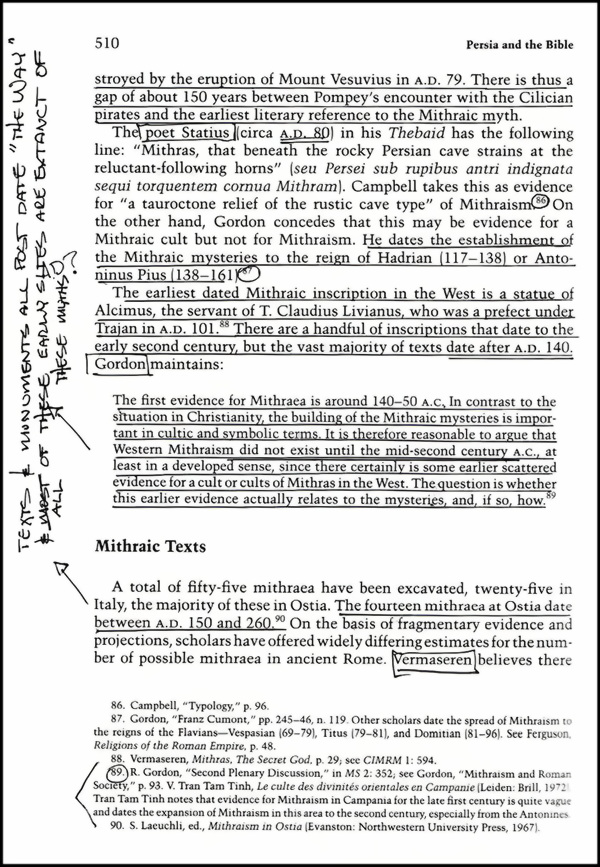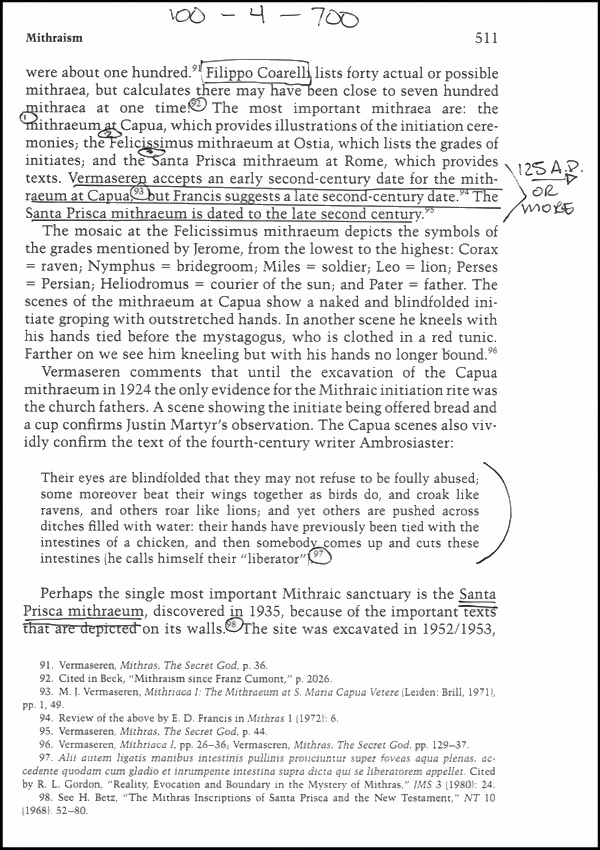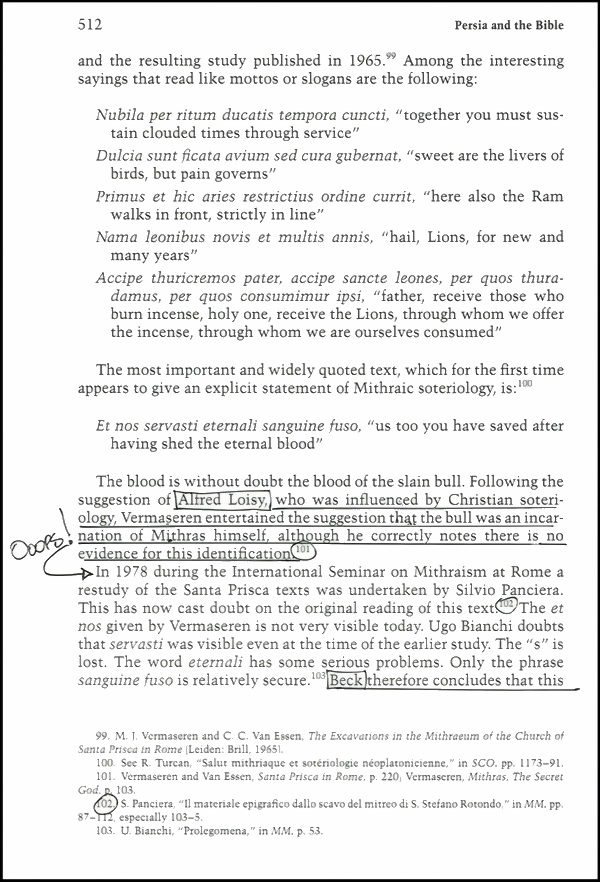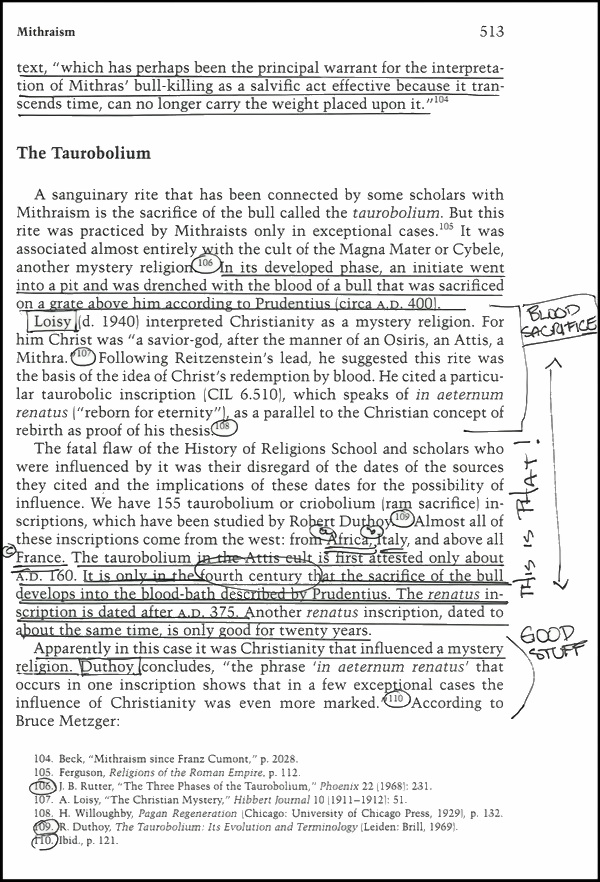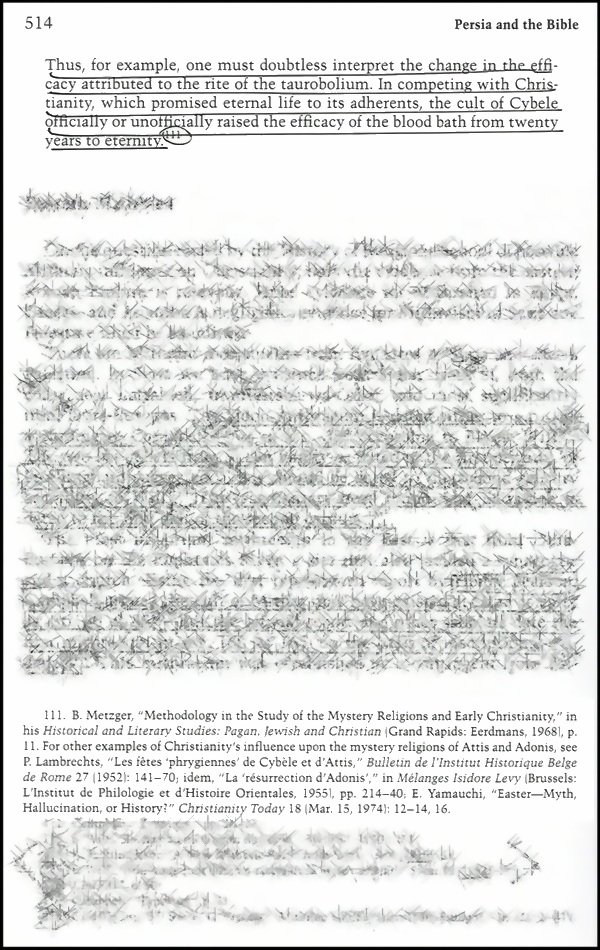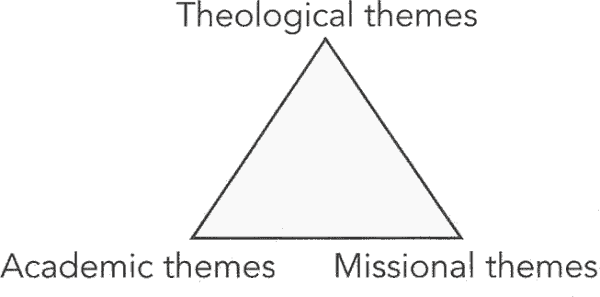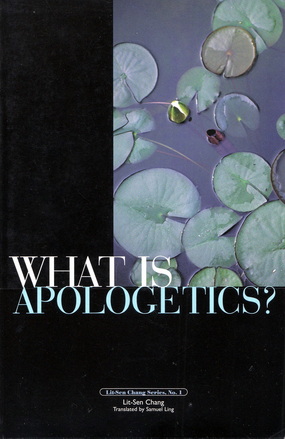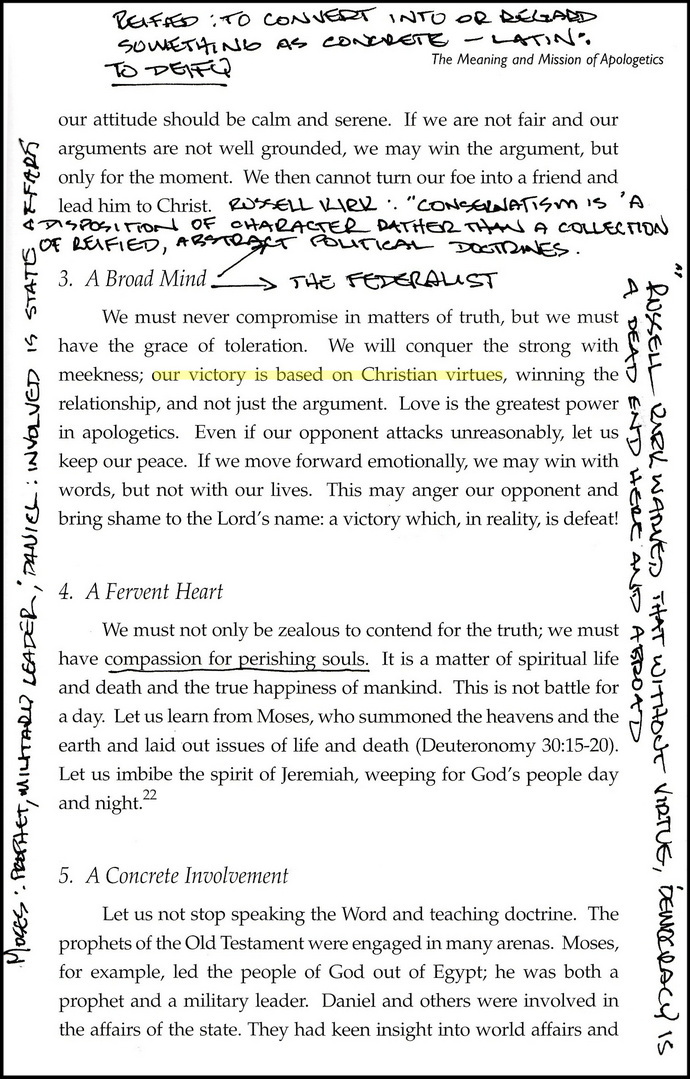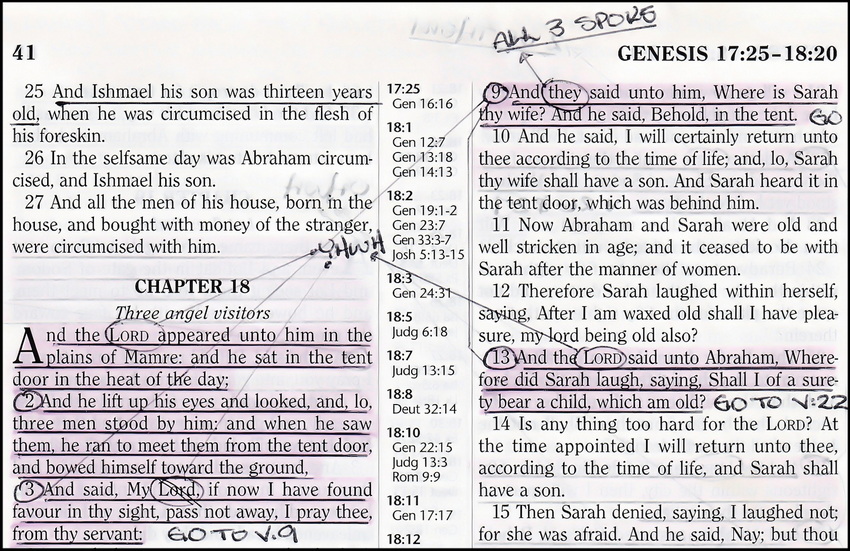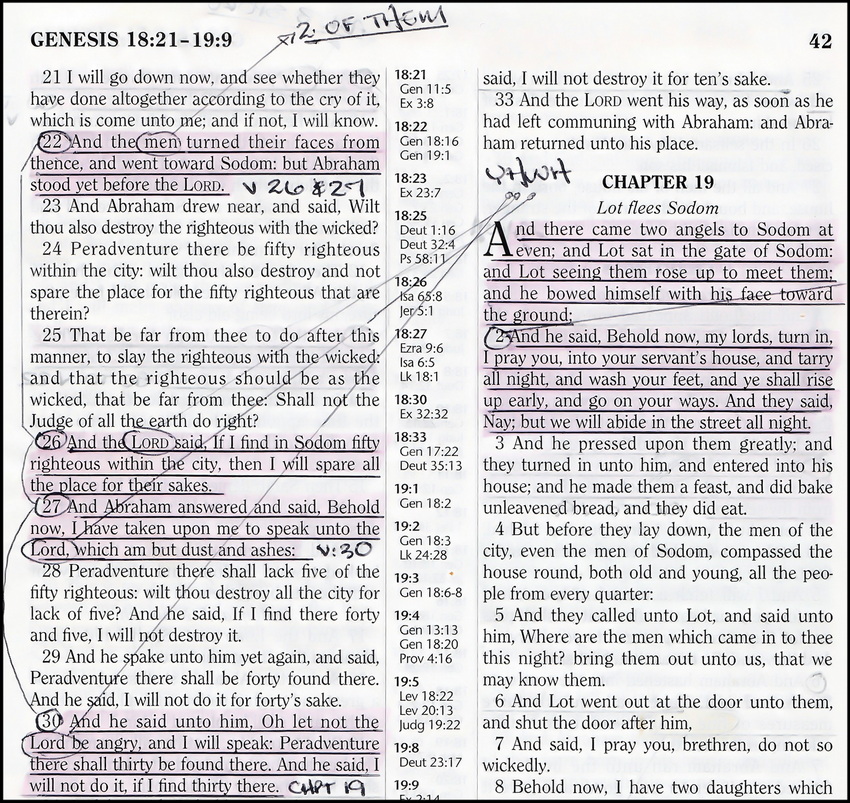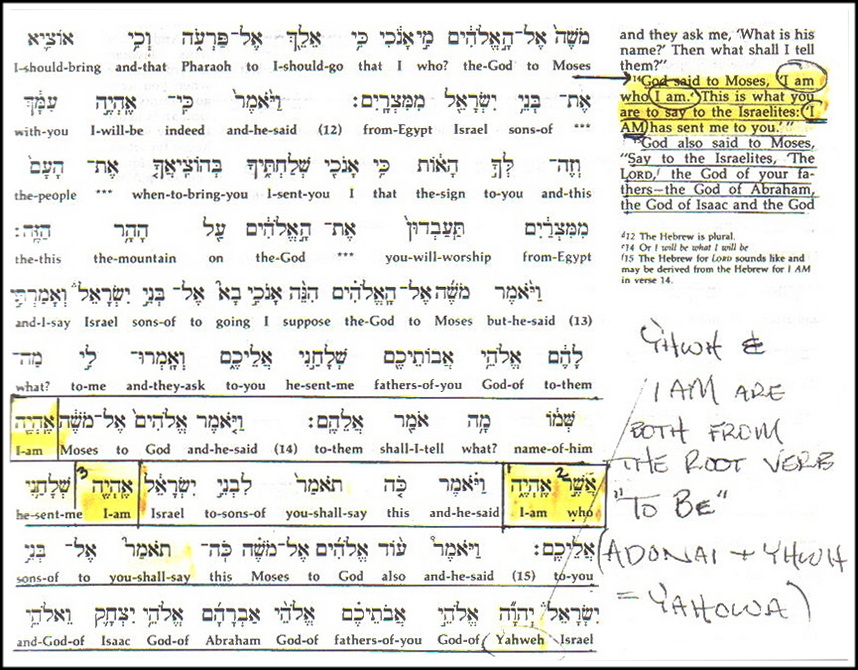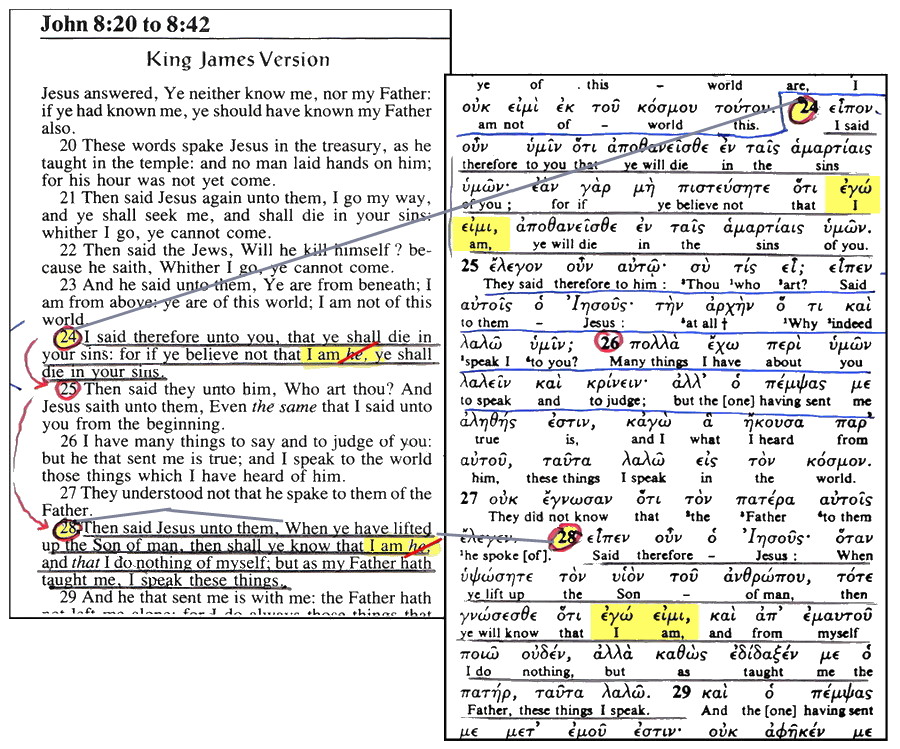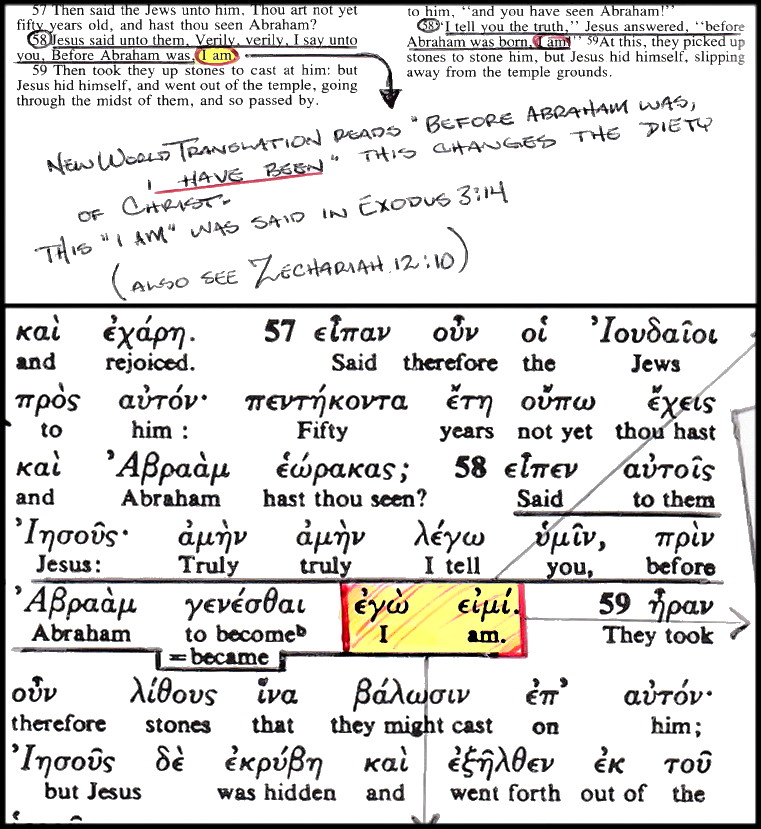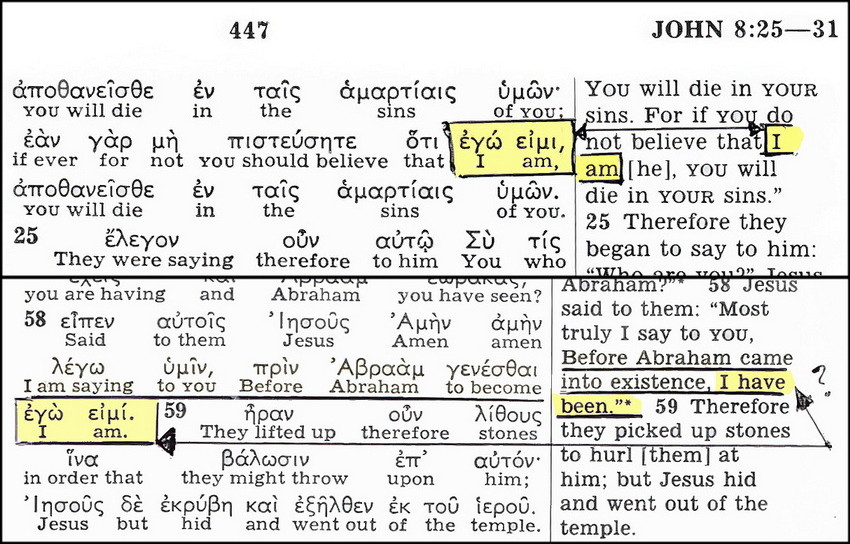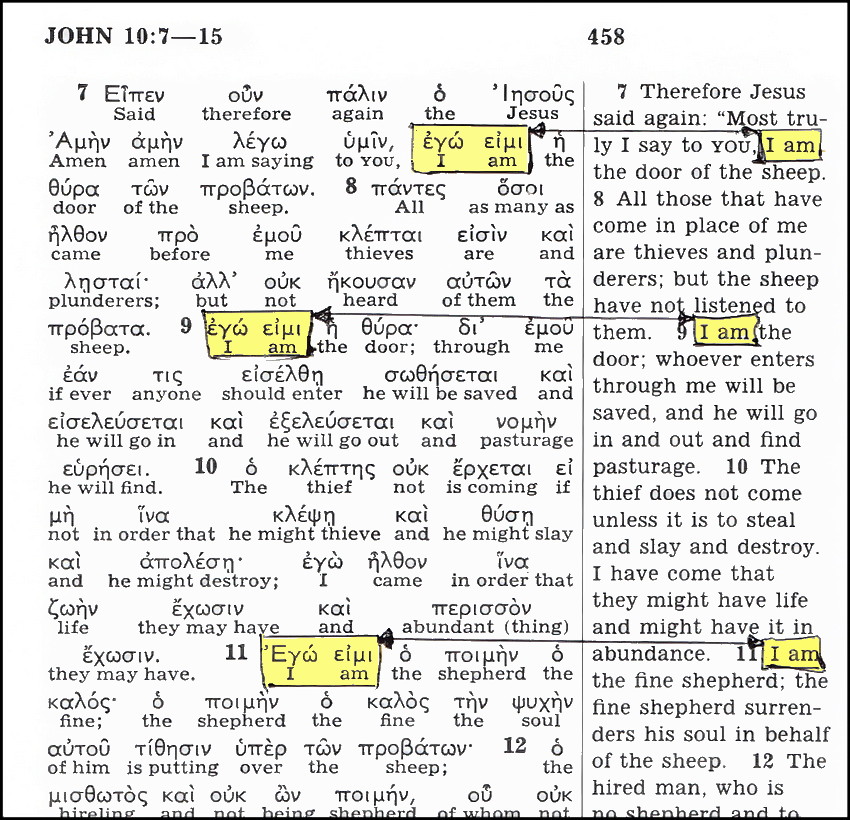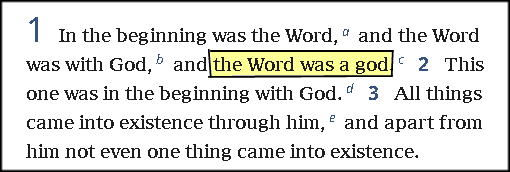In putting this post together to “house” the above video, I found out the sad news that Mark Foreman passed a couple years back (Liberty University). So, if any of his family or friends come across this video description, know that his work has lasted and affected the apologetic discourse and response for years to come. I look forward to meeting him in the “great-by-n-by.” This is from the book, “Come Let Us Reason: New Essays in Christian Apologetics” (AMAZON)
See my, “Is Jesus a Copycat Savior?“, for more.
Chapter 11
CHALLENGING THE ZEITGEIST MOVIE
Parallelomania on Steroids
Mark W. Foreman
A few semesters back, a student approached me after class and wanted to know whether he could meet with me. He was having some doubts about his faith because of a movie he had seen on the Internet called Zeitgeist (pronounced “tzaiyt-gaiyst“). He shared with me how this movie had made claims that Christianity was a total fiction—that it was completely made up from a combination of other religious claims—and that all world religions were just different expressions of sun worship. He blurted out, “They really backed up their claims with all sorts of evidence, Dr. Foreman. I don’t know what to believe anymore. Is it true? Is all this stuff I was taught in church just a big hoax?” I had not seen the film at the time, but I had heard there was something out there on the web and decided to investigate it. What I found was a very polished film that might come across to the uninformed at first glance as well argued but actually was full of fallacious arguments and false claims. In fact, they weren’t even new bad arguments. Some of them go back to the late nineteenth century.
In this essay, I want to briefly examine some of the arguments and claims of Zeitgeist. My purpose will be to show that these arguments are replete with poor reasoning and that the argument that Christianity is just a rehash of old pagan myths does not hold up under close scrutiny.
The Zeitgeist Movie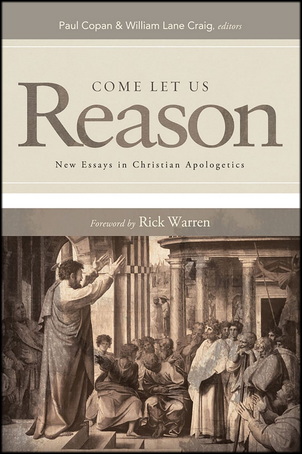
Zeitgeist (a German word meaning “spirit of the age”) was produced and written by Peter Joseph and was released online in June of 2007. The film is a two-hour documentary conspiracy theory that attempts to show a connection among three supposed frauds: Christianity, the terrorist attacks of 9/11, and the domination of world events by international bankers. The film is made up of three parts, each part dedicated to one of these three supposed frauds. For purposes of this essay, we will only discuss the claims from part 1 about Christianity.
This first portion of the film is divided into two main arguments: (1) Christianity is a myth based on teachings from earlier pagan myths; (2) all these myths, including Christianity, are in essence astrologically based—a view called “astrotheology.” Because of space constraints, I shall examine only the first argument. The basic thesis of this argument is well stated in The Companion Guide to Zeitgeist: Part 1. The book was written by Acharya S, the periodic pen name of Dorothy M. Murdock, who was a primary consultant for the film and whose book, The Christ Conspiracy: The Greatest Story Ever Sold, was one of the main sources for many of the claims in the film. She writes:
Indeed, it is my contention and that of others deemed “Jesus mythicists” that the creators of the gospel tale picked various themes and motifs from the pre-Christian religions and myths, including and especially the Egyptian, and wove them together, using also the Jewish scriptures, to produce a unique version of the “mythos and ritual.” In other words, the creators of the Christ myth did not simply take an already formed story, scratch out the name Osiris or Horus and replace it with Jesus. They chose their motifs carefully, out of the most popular religious symbols, myths and rituals, making sure they fit to some degree with the Jewish “messianic scriptures” as they are termed, and created a new story that hundreds of millions since have been led to believe really and truly took place in history. . . . In other words, we are convinced that “Jesus Christ” is a fictional character created out of older myths, rituals and symbols.1
The idea that the early church of the first century borrowed its beliefs from other pagan religions is often referred to as the copycat theory. The main tactic employed in supporting this claim is to cite parallels between the pagan religions and Christianity. Here is an example from the film:
Broadly speaking, the story of Horus is as follows: Horus was born on December 25th of the virgin Isis-Meri. His birth was accompanied by a star in the east, which in turn, three kings followed to locate and adorn the new-born savior. At the age of 12, he was a prodigal child teacher, and at the age of 30 he was baptized by a figure known as Anup and thus began his ministry. Horus had 12 disciples he traveled about with, performing miracles such as healing the sick and walking on water. Horus was known by many gestural names such as The Truth, The Light, God’s Anointed Son, The Good Shepherd, The Lamb of God, and many others. After being betrayed by Typhon, Horus was crucified, buried for 3 days, and thus, resurrected.
These attributes of Horus, whether original or not, seem to permeate in many cultures of the world, for many other gods are found to have the same general mythological structure.
Attis, of Phrygia, born of the virgin Nana on December 25th, crucified, placed in a tomb and after 3 days, was resurrected.
Krishna, of India, born of the virgin Devaki with a star in the east signaling his coming, performed miracles with his disciples, and upon his death was resurrected.
Dionysus of Greece, born of a virgin on December 25th, was a traveling teacher who performed miracles such as turning water into wine, he was referred to as the “King of Kings,” “God’s Only Begotten Son,” “The Alpha and Omega,” and many others, and upon his death, he was resurrected.
Mithra, of Persia, born of a virgin on December 25th, he had 12 disciples and performed miracles, and upon his death was buried for 3 days and thus resurrected, he was also referred to as “The Truth,” “The Light,” and many others. Interestingly, the sacred day of worship of Mithra was Sunday.2
This tactic of citing parallels is not new. In fact, in a 1962 article in the Journal of Biblical Literature, Samuel Sandmel referred to such sloppy scholarship as “parallelomania,” which he defined as “that extravagance among scholars which first overdoes the supposed similarity in passages and then proceeds to describe source and derivation as if implying literary connection flowing in an inevitable or predetermined direction.”3 Zeitgeist is parallelomania on steroids.
In addressing the copycat charge, I do not intend to examine every parallel being claimed, though I will comment on some of them.4 Instead, my approach is to look at the overall method used in making the arguments in the film and by other supporters of the copycat theory. I will argue that these arguments are baseless, and poorly argued, and most of them are rejected by all but a tiny percentage of scholars in the field.
Assessing the Copycat Theory
Before examining the specific fallacies involved in the copycat theory, I need to make some general comments. First, while the ideas portrayed in Zeitgeist may be new to many viewers, the basic charge is an old one. The copycat theory emerged in the mid-nineteenth century and was popularized mostly through James Frazer’s The Golden Bough (1890). It continued until the early twentieth century, when its methods and conclusions were rejected by critical scholars.5 In fact, the vast majority of sources cited in the online Zeitgeist transcript to support its claims come either from these late-nineteenth- and early-twentieth-century authors or from more recent writings that depend heavily on these sources.6 While the copycat theory is largely ignored by critical scholars, the movement has gained some new momentum more recently, in part owing to films such as this.7 While the view is regaining popularity, however, no new evidence has been presented in its support. The same old sources are just being dusted off and repackaged as slickly produced films like Zeitgeist. Arguments don’t stop being bad simply because of their upgraded, flashy attire.
Another point to note is that certain similarities between pagan religions and Christianity are inevitable. The simple fact that we categorize them under the same term—”religion”—means that they will have some things in common. Many religions believe in and worship a godlike figure, have rites and ceremonies that express this belief, and deal with the universal struggles of the human condition. These are often conveyed in a shared language and analogous symbols.8 Ronald Nash comments, “After all, religious rituals can assume only a limited number of forms, and they naturally relate to important or common aspects of human life. Alleged similarities might reflect only common features of a time or culture, rather than genetic dependence.”9 Similarity, we see, does not imply dependence. In order to better understand this, we need to make “a clear distinction between dependence in the genetic sense and the dependence of ‘adaptation.'”10 A “genetic” dependence is one where we can trace an idea or belief back to an original earlier source. A dependence of “adaptation” occurs when one borrows words, symbols, or concepts to convey an idea or belief, the substance of which does not originate in another religion. For example, the apostle Paul adapts the Athenians’ belief in an unknown God in the speech on Mars Hill to talk about the Christian God. The church father Clement of Rome (d. AD 110) does the same thing when he says, “Come, I shall show you the Logos, and the mysteries of the Logos, and I shall explain them to you in images that are known to you.”11 The adaptation sense of dependence is still used today by Christian missionaries to communicate the gospel message in foreign cultures.
Is there any evidence of genetic dependence of Christian beliefs on pagan religions? Yes and no. There is strong evidence that the pagan religions did have some influence over certain beliefs and practices of the Christian church. However, as biblical scholar Bruce Metzger comments, “A distinction must be made between the faith and practice of the earliest Christians and that of the Church during subsequent centuries. One cannot deny that post-Constantinian Christianity [fourth and fifth centuries AD], both Eastern and Western, adopted not a few pagan rites and practices.”12 For example, mystery religions may well have influenced the selection of December 25 as the celebration of the birth of Christ, but this date was not widely observed until the fourth century.13 We do not deny such late influences. What is missing, though, is evidence to suggest that any pagan religion influenced basic Christian teaching or the Gospel accounts of Jesus written in the first century. There are two reasons for this. First, there is no evidence of pagan mystery religions existing in Palestine in the first century.14 Second, Judaism was an extremely exclusive monotheistic religion and would not have tolerated the syncretism of the mystery religions. Christianity was even more exclusivistic and has often been referred to as the “anti-mystery” religion.15
A third point has to do with the overall fallacy behind these arguments: post hoc, ergo propter hoc—a form of the fallacy of the false cause. It is committed when a causal connection is drawn between two events or ideas without adequate evidence of such a connection. While Zeitgeist is full of individual examples of post hoc fallacies,16 my point is that the entire argument based on parallels is one flagrant post hoc fallacy. For even if it is true that these parallels between pagan religions and Christianity exist, that fact alone does not constitute evidence that Christianity was influenced or based on these pagan mystery religions. While one might speculate and assert a causal connection, speculation and assertion are not evidence of a causal connection between the two.17 Correlation does not entail causation.
Finally, Zeitgeist makes clear that its producers believe the entire story of Jesus is fictional: “Once the evidence is weighed, there are very high odds that the figure known as Jesus, did not even exist. . . . The reality is, Jesus was the Solar Deity of the Gnostic Christian sect, and like all other Pagan gods, he was a mythical figure.”18 The nonexistence of Jesus is essential to the theory behind the Zeitgeist movie, for it wants to argue that every major aspect in the life of Jesus—his birth, teachings, baptism, followers, miracles, crucifixion, and resurrection—is based not on real historical events but on previous pagan religious myths that were around long before the time of Jesus. Before one can reasonably make that case, however, one must address something more basic: There are a massive number of New Testament critical historical scholars, holding a wide range of theological perspectives, still confidently affirming the historicity of Jesus. The film simply ignores this scholarship. It is outside the scope of this article to present such evidence, but it can be categorically stated that, while there are certainly widely divergent views concerning certain specific events in the life of Jesus, the vast majority of critical scholars acknowledge the existence of the historical Jesus and most of the major aspects of His life in some form.19 The historical evidence for Jesus is a major argument against the whole theory behind Zeitgeist.20
Zeitgeist Fallacies
Space constraints preclude a discussion of all but a few of the many specific fallacies Zeitgeist commits. One of the most blatant is the terminology fallacy. That is, events in the lives of the mythical gods, for example, are expressed using Christian terminology in order subtly to manipulate viewers into accepting that the same events in the life of Jesus also happened in the lives of mythical gods. We are told, for instance, that Horus, Krishna, Dionysius, and others were “baptized,” “born of a virgin,” “crucified,” and “resurrected”—just to mention a few. Examples of such locutions, however, involve assertions with no evidence, are ripped out of their Christian context, or are obtained from post-first-century sources. Nash observes: “One frequently encounters scholars who first use Christian terminology to describe pagan beliefs and practices and then marvel at the awesome parallels that they think they have discovered.”21 A few examples will suffice.
It is claimed that Horus was “born of the virgin Isis-Meri.”22 In the most common version of the Osiris-Isis-Horus myth, Osiris has been murdered by Set and cut into 14 pieces. Isis, his wife (so we can assume she is not a virgin), retrieves all but one of the pieces and reconstructs Osiris. She cannot find the fourteenth piece (his sexual organ); so she fashions one out of wood and then has sexual relations with him. She later gives birth to Horus. Here are other alleged “virgin births.” Attis is conceived when Zeus spilled his seed on the side of a mountain which eventually became a pomegranate tree. Nana, mother of Attis, is sitting under the tree when a pomegranate falls in her lap and she becomes pregnant with the child of Zeus. Devaki, the mother of Krishna, had seven children before Krishna.23 Dionysius’s mother, Semele, was impregnated by Zeus. In fact, none of the mythical gods experienced a “virginal” conception even close to the manner that Scripture claims of Jesus.24
What of the claim that these figures were “crucified”? Krishna was shot in the foot with an arrow and died from his wounds. Attis castrated himself in a jealous rage, fled into the wilderness, and died. Depending on which version of the myth one reads, Horus either (1) did not die, (2) was merely stung by a scorpion, or (3) his death is conflated with the death of Osiris.25 Adonis was gored by a wild boar. Yet, Acharya S justifies the use of the term “crucify” to describe the death of Horus as follows:
When it is asserted that Horus (or Osiris) was “crucified” it should be kept in mind that it was not part of the Horus/Osiris myth that the murdered god was held down and nailed on a cross, as we perceive the meaning of “crucified” to be, based on the drama we believe allegedly took place during Christ’s purported passion. Rather in one myth Osiris is torn to pieces before being raised from the dead, while Horus is stung by a scorpion prior to his resurrection. However, Egyptian deities, including Horus, were depicted in cruciform with arms extended or outstretched, as in various images that are comparable to crucifixes.26
So, according to Murdock, anytime deities are depicted with arms outstretched, we are justified in claiming they were crucified.
A final example is the claim that all of these gods were “resurrected” from the dead. While the idea that the resurrection of Jesus was borrowed from the “dying and rising gods” of the pagan mystery religions was very popular at one time, almost all scholars have abandoned this view today. Jonathan Z. Smith writes:
All of the deities that have been identified as belonging to the class of dying and rising deities can be subsumed under the two larger classes of disappearing deities or dying deities. In the first case, the deities return but have not died; in the second case, the gods die but do not return. There is no unambiguous instance in the history of religions of a dying and rising deity.27
The best known example of a resurrection claim is the Horus/Osiris myth, but Osiris did not rise from the dead and return to this world as did Jesus.
Instead, he was made king of the underworld.28 After his death, Attis eventually turns into a pine tree. Many sources claiming resurrections were written long after the first-century sources for Christianity and therefore could not have influenced the Gospel accounts or Paul’s teaching in letters such as 1 Corinthians. A second-century source tells us of the resurrection of Adonis. Claims of Krishna’s resurrection do not emerge until the sixth or seventh century.29 Older tradition holds he simply entered the spirit world where he is always present. This is not a resurrection in the manner in which the Gospels claim Jesus rose from the dead.
A second fallacy is the nonbiblical fallacy. This is where a parallel is claimed about some aspect of Jesus that is not even reported in the Gospel accounts. One example is where Zeitgeist claims a parallel between the three stars in the belt of Orion called the “three kings” and the three kings who visited the baby Jesus. The problem is that the Gospels never call them kings and never state how many there are.30 Another example, mentioned above, is the oft-claimed parallel of the birth date of all these deities, December 25, with the birth date of Christ.
A third fallacy is the chronological fallacy. In order for the copycat charge of borrowing to succeed, one needs to provide evidence that the parallel preceded the writing of the Gospel accounts and the letters of Paul— all written in the first century. However, this simply is not the case. First, as mentioned above, there is no evidence that there was any pagan mystery influence in first-century Palestine.31 Second, the mystery religions evolved over time, and as they did, their beliefs and narratives changed. This results in several versions of the various pagan myths. Most of the evidence we have of their narratives comes from sources dated in the second and third centuries, a time when they were experiencing the peak of their influence in the Mediterranean world. We have little evidence of the beliefs of these religions from the first century. Nash comments:
Far too many writers on the subject use the available sources to form the plausible reconstructions of the third-century mystery experience and then uncritically reason back to what they think must have been the earlier nature of the cults. We have plenty of information about the mystery religions of the third century. But important differences exist between these religions and earlier expressions of the mystery experience (for which adequate information is extremely slim).32
A fourth fallacy closely connected with this last one is the source fallacy. One of the comments often made in praise of Zeitgeist is how well the claims are documented. It is true that, in the transcript of the movie, many of the claims are documented; some by multiple sources. The brief section quoted above has 44 citations from 11 different sources to support its claims. At first glance this may seem impressive. As scholars will insist, however, it is not the number of sources that matter but their quality—and the quality of these sources is highly questionable. Not one of them is a primary source of the religion under discussion. They are all secondary, and most of them are the older, discredited sources that have been abandoned by most critical scholars. These sources often make undocumented assertions, speculate on causal relationships, and offer selective interpretations of some texts (of which there is much unrevealed disagreement). Often the authors are not experts in the field of religion, or they are experts in a related field (such as Egyptology), neither of which is a qualification over which to drape a cloak of scholarship. What inevitably results is rabid and unprincipled speculation on the origin of Christianity.
One reason why primary sources are not relevant is that they are not as conclusive as copycat theorists would lead one to believe. Because these ancient religions evolved over time, often no one authoritative story exists to which one may appeal. For example, the story of Horus in Zeitgeist is pieced together from a number of sources, some of which conflict. It is like playing “connect the dots,” but interpreting how to connect those dots is a slippery, unscholarly enterprise. These writers seem to use the life of Jesus as a guide for how to connect the dots for the life of Horus and then proclaim that the story of Jesus is based on Horus—when actually it is the other way around! Other religions don’t fare much better. For example, there is no text for Mithraism; everything we know about the religion comes either from interpreting reliefs and statues or from brief comments by other ancient writers, almost all of whom are post-first century. Metzger comments, “It goes without saying that alleged parallels which are discovered by pursuing such methodology evaporate when they are confronted with the original texts. In a word, one must beware of what have been called ‘parallels made plausible by selective description.'”33
The final fallacy to mention is the difference fallacy, which is committed by an overemphasis on (supposed) similarities between two things while ignoring the vast and relevant differences between them. Again, Metzger observes, “In arriving at a just estimate of the relation of the Mysteries to Christianity as reflected in the New Testament, attention must be given to their differences as well as resemblances.”34 The differences between Christianity and the pagan religions are enormous, and yet Zeitgeist ignores them.
Here are a few examples. First, whereas all of the mystery religions are tied into the vegetative cycle of birth-death-rebirth and continue to follow this cycle year after year ad infinitum, Christianity is linear, viewing all of history as headed on a trajectory culminating in God’s transforming this world into a renewed creation—the new heaven and new earth. Second, mystery religions are secretive. One has to go through secret initiation rites to become a member. They are full of secret knowledge, available only to some, which is one reason we don’t know a lot about them. By contrast, Christianity is open to all to scrutinize and to embrace. It is a “mystery of revelation.”35 Third, doctrine and beliefs are totally unimportant in pagan mystery religions. In fact, a characteristic hallmark is their syncretism: you can hold almost any belief and still become a member of their religion. They emphasize feeling and experience over doctrine and belief.36 In diametric contrast, doctrine and beliefs are the heart and soul of Christianity, which is highly exclusivistic. That is one of the major reasons Christians were so persecuted in the Roman Empire. They held that there was only one way to God. Fourth, the pagan mystery religions are almost completely void of almost any ethical element. Rahner comments:
At no stage [of their development] do the mysteries bear comparison with the ethical commandments of the new Testaments and their realization in early Christianity. The two terms are truly incommensurable—and this is not the foregone conclusion of apologists but results from an unbiased examination of the sources by scholars who cannot be accused of denominational commitment.37
Fifth, even if one accepts the “dying and rising gods” concept, the meaning of the death of Christ is completely different. Christ died for the sins of mankind; none of the pagan gods died for someone else. Pagan gods died under compulsion, but Jesus died willingly. Jesus died and was raised once; the pagan gods die cyclically. Jesus’ death was not tragic or a defeat; it was a victory. Pagans mourn and lament the death of their gods.38 Finally, and most importantly, the view of the church from the very beginning is that Jesus was a real person who lived in history. His death and resurrection were actual events of history. Metzger states, “Unlike the deities of the Mysteries, who were nebulous figures of an imaginary past, the Divine being whom the Christian worshipped as Lord was known as a real Person on earth only a short time before the earliest documents of the New Testament were written.”39 It is the historicity of Jesus’ life, death, and resurrection that makes Christianity the true anti-mystery.
Conclusion
Imagine we are 2,000 years in the future. Through some sort of cataclysmic event only a handful of documents of the history of the United States are available, and these are just fragments. After sifting through these fragments, a small group of historical enthusiasts come to a radical conclusion: The myth of President John F. Kennedy is based on the earlier myth of Abraham Lincoln. Their reason for such a conclusion: “Just look at all the parallels!”
- Lincoln was elected to Congress in 1846; Kennedy was elected to Congress in 1946.
- Lincoln was elected president in 1860; Kennedy was elected President in 1960.
- “Lincoln” and “Kennedy” each have seven letters in their names.
- Lincoln had a secretary named Kennedy; Kennedy had a secretary named Lincoln.40
- Both married, in their thirties, a 24-year-old socially prominent girl who could speak fluent French.
- Both presidents dealt with civil rights movements for African Americans.
- Both presidents were assassinated on a Friday, in the back of the head, before a major holiday, while sitting next to their wives.
- Both their assassins were known by three names consisting of 15 letters (John Wilkes Booth, Lee Harvey Oswald).
- Oswald shot Kennedy from a warehouse and was captured in a theater; Booth shot Lincoln in a theater and was captured in a warehouse.41
- Both assassins were shot and killed with a Colt revolver days after they assassinated the president and before they could be brought to trial.
- Both presidents were succeeded by vice presidents named Johnson, from the South, born in 1808 and 1908 respectively.42
This example shows that insignificant, spurious, false, and misleading parallels can be used to argue just about anything.
When one considers the fallacies that permeate the “parallelomania” of Zeitgeist, one is left agreeing with Rahner: “It is and remains a riddle how in the period of unrestricted ‘comparative religion’ scholars should even have ventured a comparison, not to speak of trying to derive the basic doctrines of Christ from the mystery religions.”43 But it is Adolf von Harnack, writing in 1911, who deserves the last word here:
We must reject the comparative mythology which finds a causal connection between everything and everything else, which tears down solid barriers, bridges chasms as though it were child’s play, and spins combinations from superficial similarities. . . . By such methods one can turn Christ into a sun god in the twinkling of an eye, or transform the Apostles into the twelve months; in connection with Christ’s nativity one can bring up the legends attending the birth of every conceivable god or one can catch all sorts of mythological doves to keep company with the baptismal dove; and find any number of celebrated asses to follow the ass on which Jesus rode into Jerusalem; and thus with the magic wand of “comparative religion,” triumphantly eliminate every spontaneous trait in any religion.44
FOOTNOTES
1 Acharya S, The Companion to Zeitgeist: Part 1 (Seattle, WA: Stellar House Publishing, 2009), 8 (emphasis hers).
2 Peter Joseph, Zeitgeist : The Movie. Online Transcript (2007). Accessed Sept. 23, 2011, http://en.wikiversity.org/wiki/Zeitgeist_the_movie/Transcript.
3 Samuel Sandmel, “Parallelomania,” Journal of Biblical Literature 81 (1962): 1. Sandmel admits that he did not originate the term “parallelomania” but does not remember where he first came across it.
4 Unfortunately, space does not allow me to do more than offer a short overview of the main problems of the copycat theory. I encourage the reader to seek out the sources cited in this article (especially Rahner, Metzger, Nash, and Komoszewski et al.) for a more thorough treatment.
5 The Religionsgeschichtliche Schule, or history of religions school, coming out of Germany, was one of the instigators of this line of thinking, but was abandoned by the early 1930s because of its radical methodology and approach. See Kurt Rudolph, “Religionsgeschichtliche Schule,” The Encyclopedia of Religion, ed. Mircea Eliade (New York: Macmillan, 1987), 12:293–96.
6 Forty percent of the citations offered come from only three sources: Gerald Massey, a nineteenth-century amateur Egyptologist, author of The Historical Jesus and the Mythical Christ (1886); Thomas Doane, Bible Myths and Their Parallels in Other Religions (1882); and James Frazer, The Golden Bough (1890). My argument is not that age makes a work necessarily inferior. It is simply to point out that this is an old theory that has been abandoned by all but a tiny handful of scholars, a fact of which viewers of the film are likely to be unaware.
7 One writer suggests that much of the resurgence is because of a “ready access to unfiltered information via the internet and the influential power of this medium. The result is junk food for the mind—a pseudointellectual meal that is as easy to swallow as it is devoid of substance.” J. Ed Komoszewski, M. James Sawyer, and Daniel B. Wallace, Reinventing Jesus: How Contemporary Skeptics Miss the Real Jesus and Mislead Popular Culture (Grand Rapids: Kregel, 2006), 221–22.
8 Hugo Rahner writes, “A vast number of ideas, words, rites, which formerly were designated offhand as ‘borrowings’ of Christianity from the mysteries, grew to life in the early church from a root that has indeed no bearing on a historical-genetic dependence, but that did spring from the universal depths of man, from the psychological nature common to heathen and Christian alike—’from below,’ as we have said. Every religion forms sensory images of spiritual truths: we call them symbols.” Hugo Rahner, “The Christian Mystery and the Pagan Mysteries,” in Pagan and Christian Mysteries: Papers from the Eranos Yearbooks, ed. Joseph Campbell (New York: Harper Torchbooks, 1955), 171–72.
9 Ronald H. Nash, The Gospel and the Greeks: Did the New Testament Borrow from Pagan Thought? (Phillipsburg, NJ: P&R Publishing, 2003), 140.
10 Rahner, “Christian Mystery,” 152; Nash, Gospel, 8–9; and Komoszewski, et al., Reinventing Jesus, 227–28, refer to this distinction as strong (genetic) and weak (adaptation) dependence.
11 Clement, Protrepticus 12.119.1, cited in Rahner, “Christian Mystery,”146. Much has been made about Justin Martyr’s defense of the virgin birth of Jesus by referencing the belief in the virgin birth of Perseus. However, the “adaptation” concept of dependence accounts for what Justin is doing here. He is not affirming Perseus’s virgin birth but just using this widespread belief to communicate his message.
12 Bruce M. Metzger, “Methodology in the Study of the Mystery Religions and Early Christianity,” Historical and Literary Studies: Pagan, Jewish, and Christian (Grand Rapids: Eerdmans, 1968), 4. Every student interested in this topic should read Metzger’s and Rahner’s essays.
13 Zeitgeist makes the point of claiming that all of the pagan gods were born on December 25. Of course, this is moot when it comes to Jesus, as the New Testament makes no mention of the date of his birth. Acharya S is aware of this response and states:
“Nevertheless it has been argued that this comparison is erroneous because Jesus Christ was not born on December 25th, an assertion in itself that would come as a surprise to many, since up until just a few years ago only a miniscule percentage of people knew such a fact. In any event, this argument constitutes a logical fallacy, because over the centuries since the holiday was implemented by Christian authorities, hundreds of millions of people have celebrated Jesus’ birthday on December 25th, or Christmas, so named after Christ. Moreover, hundreds of millions continue to celebrate the 25th of December as the birth of Jesus Christ, completely oblivious to the notion that this date does not represent the ‘real’ birthday of the Jewish son of God” (Acharya S, Companion, 24, emphasis hers).
I am not sure how this strengthens the parallel or where the “logical fallacy” is. Just because Christians have celebrated the birth of Jesus on December 25 has nothing to do with the origin of the belief and, hence, the parallel.
14 According to Metzger, “Unlike other countries bordering the Mediterranean Sea, Palestine has been extremely barren in yielding archaeological remains of the paraphernalia and places of worship connected with Mysteries” (Metzger, “Methodology,” 8). He cites one second-century source that contains a detailed list of places where Isis was worshipped: 67 in Egypt and 55 outside Egypt, only one of which is in Palestine—namely, Strato’s Tower in Caesarea, which was built by the wicked king Herod.
15 “In the matter of intolerance Christianity differed from all pagan religions, and surpassed Judaism; in that respect it stood in direct opposition to the spirit of that age. . . . It frowned upon the hospitality of the competing cults. The rites of pagans were in her eyes performed to devils; pagan worship was founded by demons and maintained in the interest of demons.” Samuel Angus, The Mystery Religions: A Study in the Early Religious Background of Early Christianity (New York: Dover Publications, 1975 [1928]), 279.
16 To offer just one example: “The Virgin Mary is the constellation Virgo, also known as Virgo the Virgin. Virgo in Latin means virgin. The ancient glyph for Virgo is the altered ‘m.’ This is why Mary along with other virgin mothers, such as Adonis’s mother Myrrha or Buddha’s mother Maya, begin [sic] with an M” (Zeitgeist transcript).
The film is suggesting a causal connection between the astrological symbol for the constellation Virgo and the names of the mothers of pagan gods as if the symbol is the cause of the names. However, there is no evidence for such a connection.
17 In the Companion to Zeitgeist: Part 1, Acharya S offers this as an explanation for the parallels:
“In essence, when studying this situation, the scenario that reveals itself is that the creators of the gospel story in large part appear to have been scouring the vast Library of Alexandria in Egypt and elsewhere, such as Antioch and Rome, and picking out various attributes of the pre-Christian religion to be used in their creation of a cohesive Christian mythical tale that was later fallaciously set into history and presented to the gullible masses as a ‘true story'” (Companion, 16).
No evidence is offered for this charge of calculated and intentional deception on the part of the early church, and the inherent implausibility of the stipulated scenario strains the credulity of the most gullible indeed.
18 Zeitgeist transcript.
19 John Dominic Crossan, certainly no conservative scholar, comments on the crucifixion of Jesus: “That he was crucified is sure as anything historical can ever be.” John Dominic Crossan, Jesus: A Revolutionary Biography (San Francisco: HarperCollins), 145.
20 Among the plethora of scholars affirming the historicity of Jesus are N. T. Wright, Jesus and the Victory of God (Minneapolis: Augsburg/Fortress Press, 1997); E. P. Sanders, The Historical Person of Jesus (New York: Penguin, 1996); John P. Meier, A Marginal Jew: Rethinking the Historical Jesus, 4 vols., Anchor Bible Reference Library (New York: Doubleday, 1991–2009); Craig Keener, The Historical Jesus of the Gospels (Grand Rapids: Eerdmans, 2009). This list barely scratches the surface.
21 Nash, Gospel, 116.
22 The term “Isis-Meri” is specifically used to associate Isis with Mary the mother of Jesus. Actually the term “meri” is used of almost all of the gods of Egypt, as Acharya S herself admits: “In reality, the epithet meri/mery [meaning ‘beloved’] was so commonly used in regards to numerous figures in ancient Egypt, such as gods, kings, priests, government officials and others that we could not list here all the instances in which it appears.” So the term has no substantive connection with Isis.
23 I read one online post that claimed: “In the Krishna tale we are not talking about real people but about myths. In the world of mythology, gods and goddesses can have a number of children and still be considered ‘chaste’ and ‘virginal.'” If one can use language so equivocally, I suppose one can claim just about anything.
24 New Testament scholar Raymond Brown comments, “These ‘parallels’ consistently involve a type of hieros gamos where a divine male, in human or other form, impregnates a woman, either through normal sexual intercourse or through some substitute form of penetration. They are not really similar to the non-sexual virginal conception that is at the core of the infancy narratives, a conception where there is no male deity or element to impregnate.” Raymond E. Brown, The Virginal Conception and Bodily Resurrection of Jesus (New York: Paulist Press, 2003), 64.
25 It is common in the development of Egyptian myth to conflate the gods. This is a major way copycats draw many of the parallels with Horus/Osiris.
26 D. M. Murdock, Christ in Egypt: The Jesus-Horus Connection (Seattle: Stellar House, 2009), 335. It is interesting to note that even Murdock states that there are other reasons gods are depicted with arms outstretched: “The god Ptah is the very ancient Father-Creator who in ‘suspending the sky’ resembles other Egyptian deities such as Isis and Horus with arms outstretched in the vault of heaven, as well as the Greek god Atlas supporting the world on his shoulders” (Companion, 32).
27 Jonathan Z. Smith, “Dying and Rising Gods,” in Encyclopedia of Religion, ed. Eliade, 1:522 (emphasis mine). Until recently this view was close to unanimous by critical scholars. In 2001, T. N. D. Mettinger published a monograph titled The Riddle of the Resurrection: Dying and Rising Gods in the Ancient Near East (Stockholm: Almquist & Wiksell International, 2001); in it he argued that there is some evidence of at least three cases of pre-Christian belief in dying and rising gods (none of whom are those highlighted in Zeitgeist). Copycat supporters have made much of Mettinger’s book, but (1) his evidence is largely circumstantial; (2) he is the only scholar who supports the view (a point he concedes); and (3) he does not believe such ancient belief led to the early church’s proclamation of Jesus’ resurrection. He writes, “There is, as far as I am aware, no prima facie evidence that the death and resurrection of Jesus is a mythological construct, drawing on the myths and rites of the dying and rising gods of the surrounding world. While studied with profit against the background of Jewish resurrection belief, the faith in the death and resurrection of Jesus retains its unique character in the history of religions” (Mettinger, Riddle, 221).
28 “Whether this can be rightly called a resurrection is questionable, especially since, according to Plutarch, it was the pious desire of devotees to be buried in the same ground where, according to local tradition, the body of Osiris was still lying” (Metzger, “Methodology,” 21).
29 A number of scholars point to evidence that these late sources may actually have borrowed from Christianity rather than the other way around. Rahner comments, “As modern scholars have become more objective in this field, they have turned with increasing interest to another aspect, namely the possible influence of Christianity on the Greek mysteries” (Rahner, “Christian Mystery,” 176). See also Metzger, “Methodology,” 11; Nash, Gospel, 187; and Komoszewski, et al., Reinventing Jesus, 232–33.
30 In fact, the film states that the three stars have been called the “three kings” from ancient times but offers no ancient text naming them so. It could very well be that they received this nickname from the Christian nonbiblical tradition of the three kings and not the other way around.
31 “There is no evidence whatever, that I know of, that the mystery religions had any influence in Palestine in the early decades of the first century”; Norman Anderson, Christianity and World Religions (Downers Grove, IL: InterVarsity, 1984), 53–54.
32 Nash, Gospel, 116.
33 Metzger, “Methodology,” 9.
34 Ibid., 12.
35 Rahner, “Christian Mystery,” 167.
36 “They are a religion of feeling. They do not address themselves to the perplexed intellect of man, they are no ‘doctrine’ or ‘dogma,’ and the cult legend with its thousands of variations has no bearing upon religious action.” Ibid., 159.
37 Ibid., 169.
38 See Nash, Gospel, 160–61, for a further development of the contrasts.
39 Metzger, “Methodology,” 13. He then quotes Plutarch, “Whenever you hear the traditional tales which the Egyptians tell about the gods, their wanderings, dismemberments, and many experiences of this sort, . . . you must not think any of these tales actually happened in the manner in which they are related” (Plutarch, De Isede at Osiride, trans. Frank Cole Babbitt, Loeb Classical Library [Cambridge, MA: Harvard University Press, 1936], 11).
40 While this is often asserted, there is absolutely no evidence that Lincoln had a secretary named “Kennedy.”
41 Well, not really. Booth was actually captured in a barn. “But it’s kind of a warehouse.”
42 These parallels are available from a number of sources and have become part of our American folklore even though they prove absolutely nothing.
43 Rahner, “Christian Mystery,” 168.
44 Translated by and cited in Rahner, “Christian Mystery,” 153. From Adolf von Harnack, Wissenschaft und Leben (Giessen, Germany: Töplemann, 1911) 2:191.
![]() Video: Life Can’t Exist Without Repair Mechanisms, and That’s a Problem for Origin-of-Life Theories
Video: Life Can’t Exist Without Repair Mechanisms, and That’s a Problem for Origin-of-Life Theories









